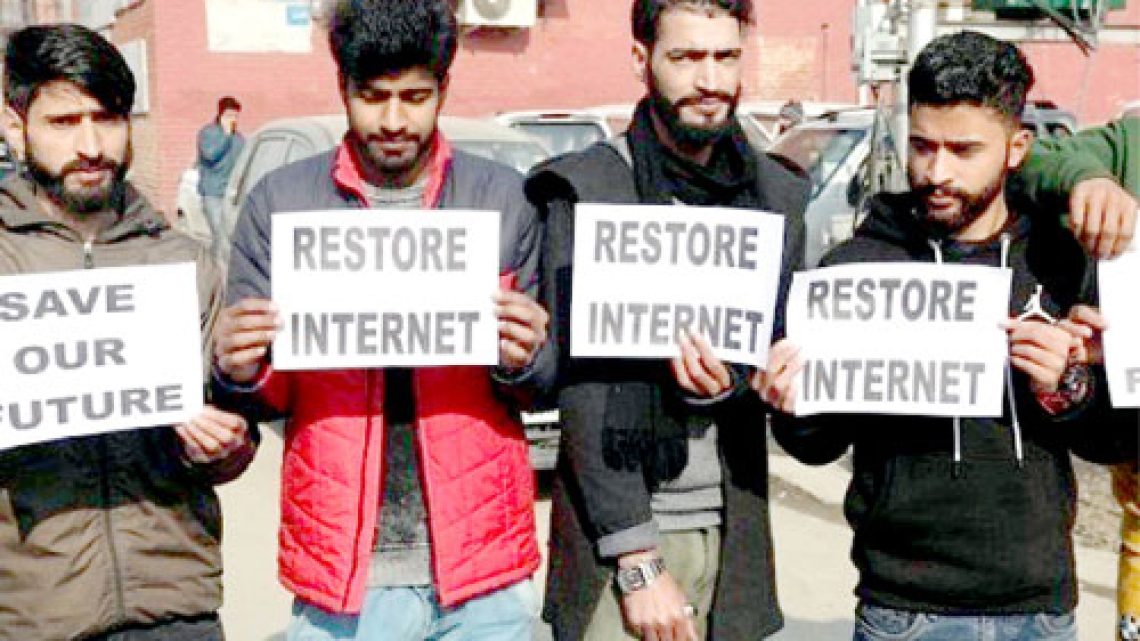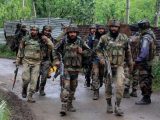
The Struggle for Information Access in IIOJK
September 30, 2024Residents of Indian illegally occupied Jammu and Kashmir (IIOJK) face severe restrictions on their fundamental right to access information. This situation is worsened by frequent internet shutdowns, which have significant implications for the local population.
These disruptions hinder communication and the sharing of vital information, obstructing meaningful dialogue about rights and aspirations. The Vienna Declaration, adopted at the World Conference on Human Rights in 1993, highlights the necessity of accessing information as a fundamental aspect of human dignity and democracy.
In IIOJK, however, this principle remains largely unfulfilled, suppressing public discourse and impeding social and economic development. The lack of access to information undermines human rights and democratic ideals, which the international community strives to uphold.
Access to information is a fundamental human right and crucial for democratic societies. The Vienna Declaration underscores that it is vital for realizing other rights, such as freedom of expression. This is particularly pressing in IIOJK, a region plagued by conflict, human rights violations, and the quest for self-determination.
IIOJK’s situation is complex, rooted in historical grievances and territorial disputes. The mainstream media often fails to cover these issues comprehensively, leading to a distorted understanding of the situation. As a result, local voices remain unheard, necessitating alternative platforms to provide a counter-narrative.
Since 2019, IIOJK has endured persistent internet shutdowns, starting with a lengthy blackout following the revocation of Article 370 on August 5. This marked a complete communication lockdown lasting 144 days, severely disrupting daily life, governance, and the economy. Although 2G services were partially restored in January 2020, high-speed 4G internet was not fully available until February 2021.
In 2022, IIOJK experienced 49 internet suspension orders, totaling 456 hours of disruption. These shutdowns were often justified as necessary for maintaining public order, yet their frequent use has drawn criticism for their broader negative consequences.
The economic impact of these shutdowns has been profound, affecting various sectors, including business, education, and healthcare. Internet-dependent industries, such as tech and tourism, have suffered greatly. In 2022 alone, the overall economic loss was estimated at $184.3 million.
Education has been particularly hard-hit in IIOJK, especially during the COVID-19 pandemic. Schools closed, and students faced difficulties accessing online classes due to poor connectivity. Telemedicine services were also hampered, making it challenging for healthcare professionals and patients to access essential resources.
Social media has become a crucial outlet for Kashmiris to express their views and document human rights abuses. Platforms like Twitter have helped raise awareness, with hashtags such as #KashmirBleeds gaining traction. However, the effectiveness of social media is under threat, as authorities impose restrictions on platforms like Facebook and WhatsApp during times of unrest.
Since the revocation of Article 370, over 45 journalists have been arrested in IIOJK, often facing charges under draconian laws. Notable arrests include several prominent journalists, raising alarms about press freedom in the region.
The situation in IIOJK requires urgent global attention, particularly regarding the implications of internet disruptions and repression of journalistic freedoms. As the international community contends with digital repression, it must prioritize protecting access to information as a fundamental human right.
Since 2019, ongoing internet shutdowns have led to digital isolation in IIOJK. This has worsened economic hardships and hindered critical sectors like education and healthcare. Despite legal attempts to limit shutdown durations, they remain a routine measure, raising concerns about their long-term impacts on governance and civil liberties.

